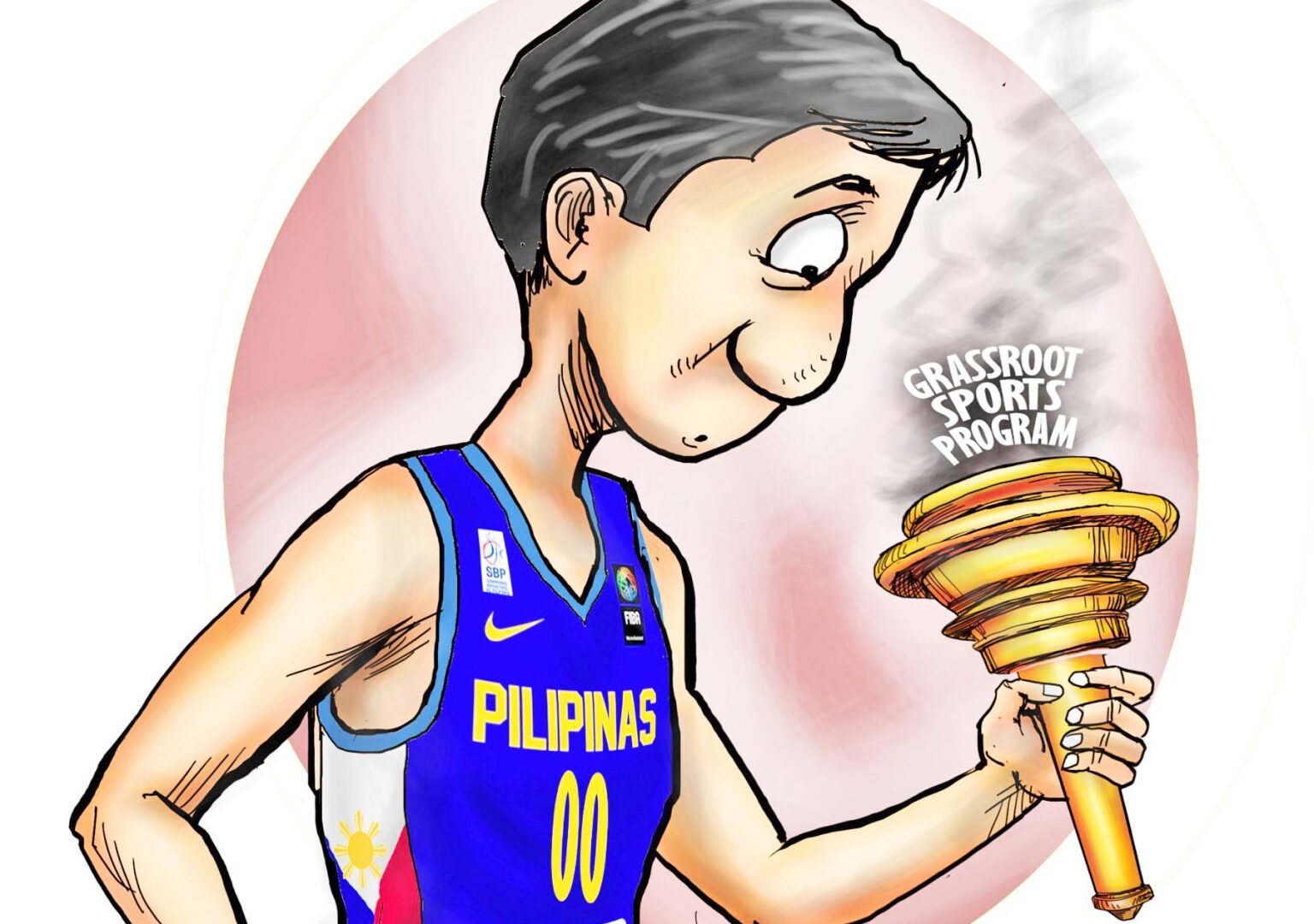Philippine basketball has suffered a big blackeye following Gilas Pilipinas’ failure to win the gold medal in the recent 31st Southeast Asian (SEA) Games in Hanoi, Vietnam.
Once invincible in men’s basketball, a selection culled from the Philippine Basketball Association (PBA) was outplayed by a disciplined Indonesian squad reinforced by a former National Basketball Association (NBA) player.
The Samahang Basketbol ng Pilipinas (SBP) has owned up to the responsibility and apologized for the debacle.
There is more to the basketball heartbreak than meets the eye.
The defeat exposed the SBP’s inability to sustain a program and overdependence on the PBA in the formation of national teams.
For a while, the SBP was on the right track when it appointed Tab Baldwin to lead the national program aimed at forming a competitive squad for the FIBA World Cup next year.
Young talents have been identified and recruited. Some actually played for the national team that saw action in FIBA World Cup qualifiers.
But for unexplained reasons, the team could not be kept together to prepare for major international competitions.
Many of the recruited amateurs ended up signing contracts with teams from the Japanese B-League.
Some were released and joined the PBA rookie draft.
Suddenly, the key pieces of the program were gone.
Last February, Baldwin resigned purportedly to focus on his other job as Ateneo coach.
For all intents and purposes, Baldwin’s departure was the final nail in the coffin.
We may never know what really happened to the program.
But what’s clear was that the SBP had no choice but to call on the PBA players for help. Again.
The problem is not exclusive only in basketball.
For decades, Filipinos are fixated on personalities instead of grassroots programs.
Weightlifter Hidilyn Diaz was a recipient of the nation’s generosity when she won the gold medal in the Tokyo Olympics last year.
Diaz was given millions of pesos, brand-new vehicles, a condominium and even a house and lot.
But before she became an Olympic champion, she had to beg for support.
Only when you achieve something will money flow like water in the faucet.
For winning the Olympic gold, Diaz won’t have to go through qualifying at home. She can compete in any major international that she desires while getting a big slice of government money.
There’s nothing wrong with that until one realizes that she is depriving another athlete to compete in her weight division.
In contrast, even the great swimmer Michael Phelps had to earn his spot to the American Olympic team. That is because the United States has a good swimming program in place.
As if the preferential treatment given to a select few is not enough, sports officials even adopt stringent criteria in the selection of athletes going to the SEA Games. Only those with chances to win bronze medals are allowed to join the delegation — a narrow-minded approach to say the least.
Our obsession for the gold medal has led many national sports associations to look for talents overseas instead of crafting a no-nonsense grassroots program to develop our own at home.
This is not to belittle the contributions of athletes who live abroad, but the quick-fix mentality is hurting Philippine sports in the long run.
Instead of investing in grassroots programs, officials use time and money to recruit talents overseas.
Success cannot be measured alone by the achievements of Diaz, Yulo or Obiena. They are mere inspirations.
It is when we start producing more Diazes, Yulos and Obienas can we safely say we are succeeding in promoting and developing Philippine sports.
Yes, we lost the gold medal in men’s basketball. It hurts. It feels like a kick in the guts.
But on a positive note, it opened our eyes that a good program is better than relying on a bunch of superstars.
